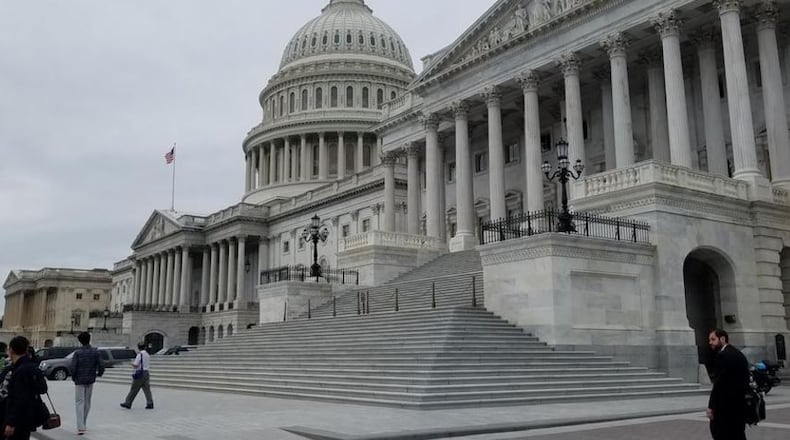With the Governor of Texas estimating that his state might need over $100 billion in aid from the federal government, the U.S. House on Wednesday approved a first disaster relief plan for victims of Hurricane Harvey, approving a $7.85 billion plan that lawmakers want to send to the President's desk by the end of the week.
"Our message today is that help is on the way," said Rep. John Culberson (R-TX). "We are acting decisively - there are no Democrats, there are no Republicans."
Describing some of the efforts by regular citizens to help - including the "Cajun Navy" from next door in Louisiana," Culberson said, "I've never been prouder to be an American, never been prouder to be a Houstonian."
Credit: Jamie Dupree
Credit: Jamie Dupree
Three Republicans voted against the Harvey aid - Rep. Justin Amash (R-MI), Rep. Andy Biggs (R-AZ), and Rep. Thomas Massie (R-KY).
"Congress should provide disaster relief funding, and we should pay for it now instead of billing our children and grandchildren for it," Amash said just before the vote.
During debate on the House floor, some Texas lawmakers told of the heartache back in their home towns and districts.
"The entire district was underway, a vast lake from Houston over to the Louisiana border," Rep. Brian Babin (R-TX) said, as labeled the devastation, "truly heartbreaking."
The quick action on Harvey aid was much different than how the House reacted after major damage from Hurricane Sandy in 2012 - this time Congress may approve funds in two weeks, while for Sandy, it took over two months.
"I want to say to my Republican friends from Texas, what you did to us, during Superstorm Sandy should not stand - should not be done to any other people, any other place in the country," said Rep. Eliot Engel (D-NY).
"I think it's important that we have to point out the hypocrisy," said Rep. Joe Crowley (D-NY), his voice rising on the House floor, as he and other Democrats vowed to support aid for Texas, while pointing out the strong opposition that Republicans had to Sandy aid.
Back in early 2013, 67 House Republicans voted against the first installment of aid for Sandy victims, which was an almost $10 billion increase in borrowing authority for the Federal Flood Insurance program. A later aid bill for Sandy saw extra provisions added in terms of non-Sandy aid.
Credit: Jamie Dupree
Credit: Jamie Dupree
The aid bill now goes to the Senate, where Senators may try to attach other provisions - like a temporary increase in the nation's debt limit - to the House-passed plan.
About the Author
The Latest
Featured





